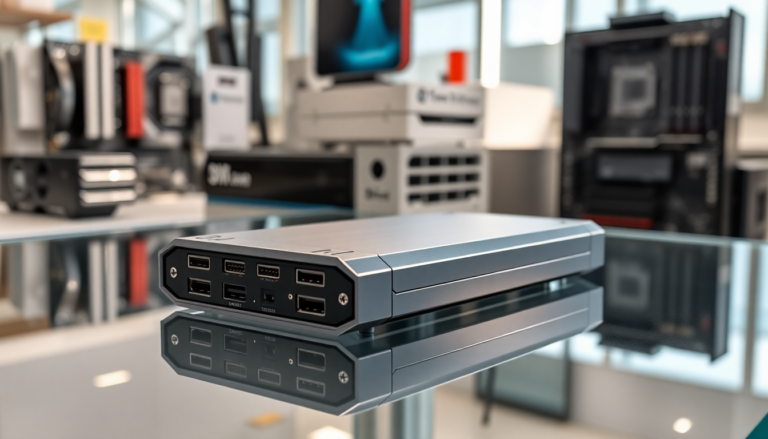Argomenti trattati
With the tech landscape constantly evolving, Biwin has stepped into the spotlight with its latest offering: the X570 SSD. Earlier this year, the company launched its high-end X570 Pro SSD, which utilized the cutting-edge PCIe 5.0 x4 interface. Now, Biwin is making waves again with the introduction of the standard X570 SSD at Computex 2025. While the name might suggest a simpler version, this new model is built on a different foundation, boasting remarkable specifications that cater to a more budget-conscious market without compromising on performance.
Introducing Biwin’s Black Opal X570 SSD
The Black Opal X570 is among the first high-performance SSDs to utilize Maxio’s MAP1806 controller. It features eight NAND channels and supports 3D TLC NAND memory, allowing for impressive read speeds of up to 14,500 MB/s. This is the maximum sequential read speed achievable with a PCIe 5.0 x4 interface. In terms of write speed, the X570 SSD reaches up to 11,000 MB/s, which, while slightly lower than the best current offerings, still places it in a competitive position within the market.
Random performance is also noteworthy, with the X570 capable of achieving up to 2 million read IOPS and approximately 1.5 million write IOPS. These figures highlight Biwin’s commitment to delivering a product that meets the demands of both gamers and content creators alike. During its unveiling, Biwin promised high sequential speeds, and the specifications now reveal a drive that can stand its ground against other premium SSDs available today.
Comparing the X570 SSD and X570 Pro
When Biwin first introduced the X570 SSD, there were hints of it matching the performance of the X570 Pro. However, it seems the company has decided to position the standard X570 SSD as a more accessible option, avoiding performance overlaps with its higher-tier counterpart. The X570 Pro SSD, based on the SMI SM2508 controller, remains the flagship model, and the introduction of the vanilla X570 might be a strategic move to cater to a wider audience.
Both models showcase impressive specifications, but the decision to limit the X570’s maximum read and write speeds likely aims to prevent any potential cannibalization of the X570 Pro’s market share. The introduction of diverse options allows users to choose based on their specific needs, whether they prioritize top-tier performance or value for money.
Configurations and endurance ratings
The Black Opal X570 SSDs will be available in various configurations: 1TB, 2TB, and 4TB. Each variant offers endurance ratings of 600 TBW, 1200 TBW, and 2400 TBW, respectively, which should satisfy most users’ requirements for durability. Furthermore, all models come with a five-year warranty, reflecting Biwin’s confidence in the product’s longevity and reliability.
As for pricing, while specifics are yet to be announced, speculation suggests that the X570 SSD will be more affordable than its Pro counterpart. This could make the X570 an enticing option for consumers looking for high performance without breaking the bank. For context, the 1TB X570 Pro retails at around €167 ($138, excluding VAT), positioning it competitively against other high-end PCIe Gen5 drives.
Future considerations and market dynamics
The landscape for SSDs is shifting, particularly with regards to component sourcing. Initially, Biwin had planned to utilize Maxiotek’s MAP1806 controller alongside YMTC’s 3D TLC NAND memory. However, ongoing market uncertainties, especially regarding tariffs on Chinese imports, could affect this strategy. Should tariffs be imposed, Biwin may need to pivot to alternative suppliers to maintain production quality and cost-effectiveness.
Regardless of these external factors, the launch of the X570 SSD represents a significant step for Biwin, illustrating its ability to innovate and adapt to ever-changing market demands. The tech community will undoubtedly be watching closely to see how these drives perform in real-world scenarios and how they compete against established brands in the high-end SSD market.

